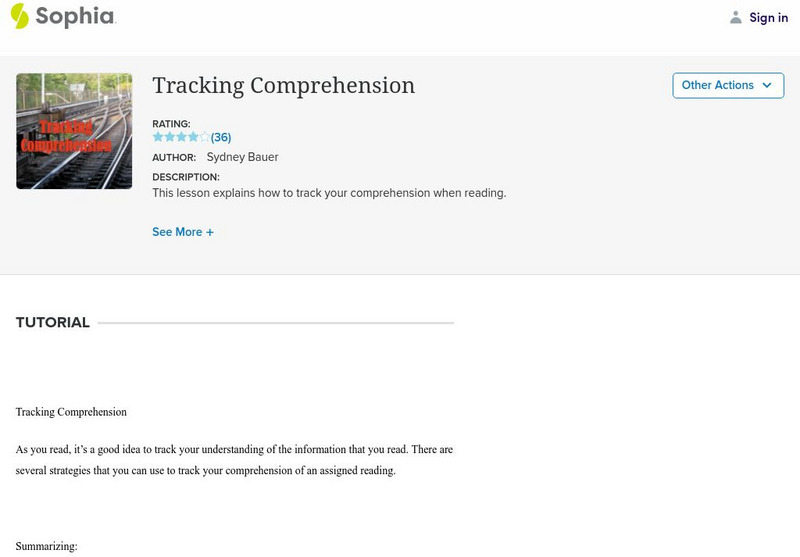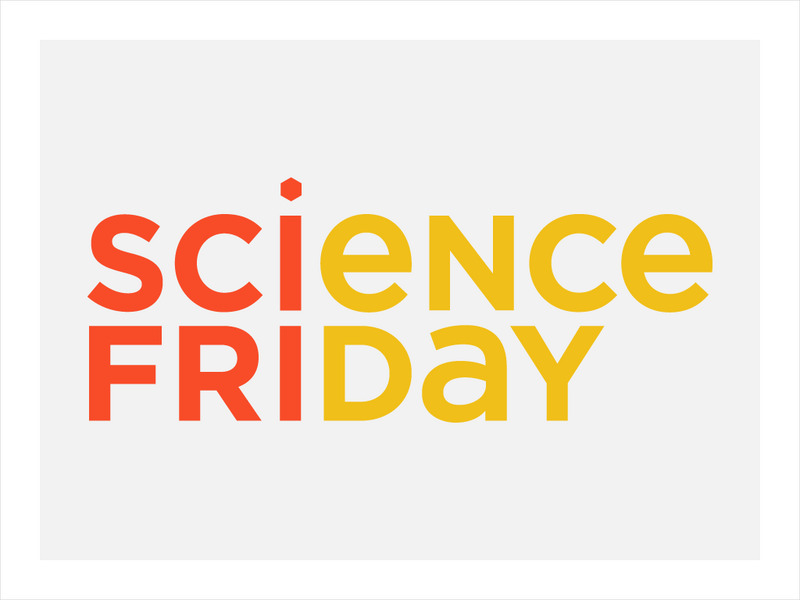TED-Ed
How Plants Tell Time
Can someone really have a "biological clock"? Discover why many organisms on earth have an inherent awareness of where they are in the day's cycle.This video discusses animal adaptations, the earth's revolutions, and how light and...
PBS
Top 4 Tips to Spot Bad Science Reporting
How can people make good decisions about their health when modern news reporting is so unreliable? Using an informative video resource, viewers discover the acronym GLAD. They learn to get past the clickbait, look for crazy claims,...
JFR Science
Proper Method of Carrying a Beaker
Special glass, that doesn't react to heat or chemicals, makes up most laboratory beakers. JFR Science presents a short video about beaker safety as part of a larger series. It explains the common way to carry a beaker as well as the...
JFR Science
How to Read a Graduated Cylinder
As part of the JFR Science series, an insightful video explains how to read a graduated cylinder. It offers the three key things to remember each time.
Physics Girl
Five Physics Experiments for the Holidays!
Some times of the year seem too busy for physics experiments. Fear not; a video explains five fast experiments using household materials. From creating CO2 to messing with static electricity, scholars enjoy playing with science....
Physics Girl
How to Make a Hurricane on a Bubble
Pop! Does your class know that bubbles help us understand our planet, molecular structure, and more? The video teaches how to create colorful vortices on a bubble using basic equipment. Then it explains other interesting ways scientists...
Physics Girl
Seven Science Experiments with Surface Tension
Surface tension helps us perform some simple—but impressive science. The video presents many experiments to briefly explain surface tension. From the surface tension on milk and coffee to water, the experiments demonstrate the strength...
TED-Ed
How to Detect a Supernova
While a star explodes every second or so in the observable universe, we can't observe a supernova in its first moments. Discover the fascinating science behind how astronomers and physicists are attempting to detect supernovas early...
Sophia Learning
Sophia: Process Papers: Organization
This video lesson focuses on organizing a process paper including how to organize using chronological sequencing in a step-by-step fashion. It includes breaking down and evaluating it in either parts to a whole or whole to parts fashion.
Sophia Learning
Sophia: Tracking Comprehension
This lesson focuses on strategies for tracking comprehension while reading. It provides three main strategies: summarizing, chunking, and glossing. It explains each in step-by-step fashion using both text and audio.
Annenberg Foundation
Annenberg Learner: Annotating Across Disciplines
Students use microscopes to look at single-celled organisms. [3:48]
Annenberg Foundation
Annenberg Learner: Thinking and Communicating Like a Biologist
The goal of this seven-day unit is to look at the big ideas in science literacy. This video on how to think and communicate like a biologist is the first lesson in the unit. [7:23]
Science Friday Initiative
Science Friday: Persuasive Technologies
How can devices, environments, or computer programs be designed to change how people behave? We'll talk about the field of 'persuasive technology.
Sophia Learning
Sophia: Revision Techniques: Peer Feedback
This video is an instructional writing lesson to teach students how to revise a paper based on another peer's feedback. The instructor provides three steps to follow after peer feedback is given. The instructor also provides additional...
Sophia Learning
Sophia: Revision Techniques: Peer Feedback
This video is an instructional writing lesson to teach students how to revise a paper based on another peer's feedback. The instructor provides three steps to follow after peer feedback is given. The instructor also provides additional...
Sophia Learning
Sophia: Process Papers: Key Elements: Lesson 1
This lesson goes over words, phrases, and key elements that are included in process papers. It is 1 of 3 in the series titled "Process Papers: Key Elements."















